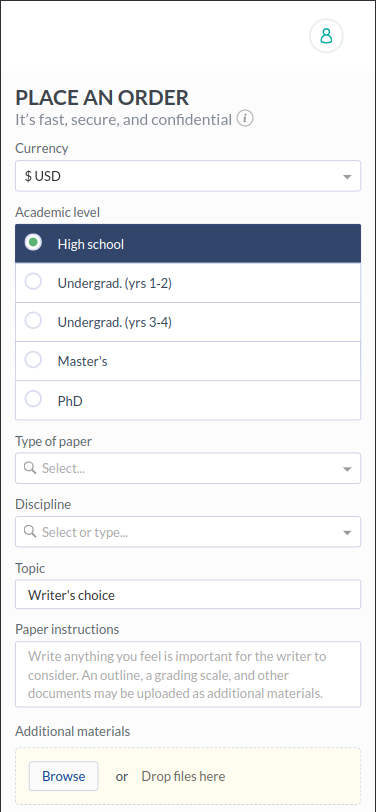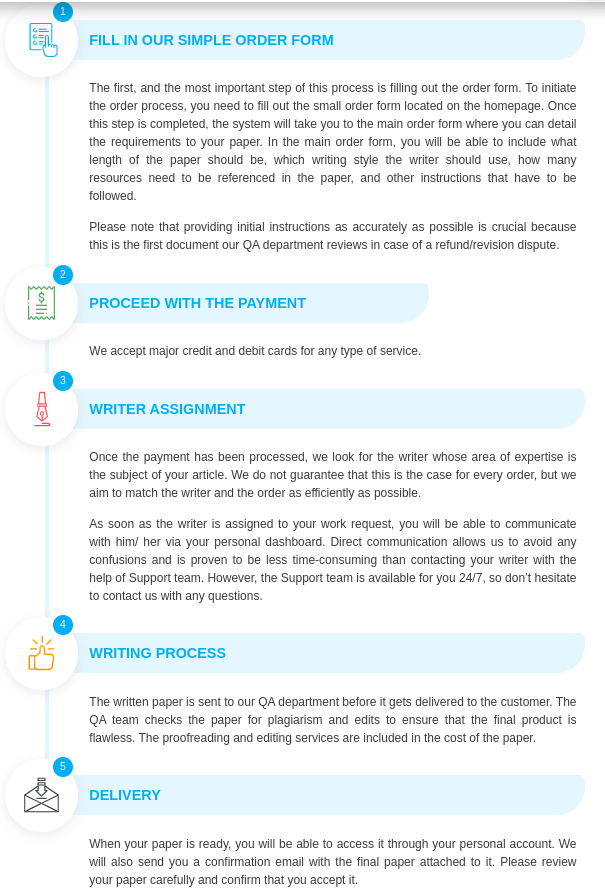NURS 6541 Week 1 Discussion
Primary care of children from newborns to those on the cusp of adulthood requires considerable knowledge, as well as the finesse to manage parents and families of all types, and the changing needs, attitudes, and independence of young people as they grow and mature. Considering that this week—in fact, this entire first module—is focused on growth and development, it is fitting for you to reflect on your current and anticipated growth and development in advanced nursing, and specifically, in pediatric care. When you made your decision to pursue training as a Family Nurse Practitioner, how did pediatrics factor in your thinking? Is the opportunity to work with children and adolescents a strong motivator, or does it rank for you as more of a concern?
As you get started with this course, take time to reflect on your present capacity as you prepare to immerse yourself in the requirements of pediatric care as a nurse practitioner. How can you benefit most from this course, and how can it further you along the professional path you have chosen or in achieving your career goals?
This Discussion can be a catalyst for self-assessment and offer valuable insights from your colleagues. It is also an opportunity to get to know them and to introduce yourself, in anticipation of further interaction as you engage in the course i-Human Assignments
To prepare:
- Review this week’s Learning Resources, and particularly Chapters 10, 11, 13, and 18 of the Burns’ Pediatric Primary Care text.
- Consider the roles and responsibilities of a nurse practitioner providing pediatric primary care. Work to define the strengths you bring to the position of Family Nurse Practitioner and the challenges you face.
- Reflect on this course and what you expect to learn and do, such as by reviewing the course description, outcomes, and course introduction. Consider how the next 11 weeks can help build your strengths and address your challenges.
- Also consider your career goals and objectives and how this course can support and/or further them. Be detailed in your thinking.
BY DAY 3 OF WEEK 1
Post a brief introduction of yourself that includes an explanation of your strengths and challenges as they apply to pediatrics and the role of a Family Nurse Practitioner. Also explain your career goals and objectives, and how your work in this course can help to accomplish those goals and objectives as a Family Nurse Practitioner. Use your research to support your explanations by providing credible and scholarly sources.
Read a selection of your colleagues’ responses
BY DAY 6 OF WEEK 1
Respond to at least two of your colleagues’ posts on two different days by offering suggestions or resources to help your colleagues in addressing their professional strengths, challenges, or career goals and objectives. Use your research to support your suggestions. Provide at least 3 credible and current scholarly sources.
Sample
Hello professor and fellow classmates,
My name is K.U, I am currently practicing as a Psychiatric Mental Health Nurse Practitioner (PMHNP) after completing my program at Walden University. I am excited to join you in this course and I look forward to learning from and with all of you.
When I decided to begin my training as a Family Nurse Practitioner, pediatrics played a significant role in influencing my decision. This is because as a PMHNP, I have seen the critical intersection between physical and mental health in children and adolescents. Many studies have shown a positive correlation between the impact of mental health issues on the physical wellbeing of not only children and adolescents but also other patients (Celebre et al., 2021). Therefore, my decision to register for this program was mainly fueled by the need to address both the physical, emotional and psychological wellbeing of the patients I work with.
My interest in pediatric care began long time ago when I was working as a nurse in the pediatrics unit. The innocence and resilience of children sparked my interest and motivated me to seek specialized training into the unique developmental challenges they face as they grow. Moreover, I work with many adolescents who face a range of unique psychological challenges as they transition into adulthood. Some of them include; identity formation, peer pressure, academic stress, family dynamics, mental health illnesses to name just a few (Bryant & VanGraafeiland, 2020). As a Family Nurse Practitioner who has also specialized in PMHNP, I recognize the critical role I can play in educating adolescents about the normal psychological developments and the challenges they may encounter, teaching stress management techniques such as mindfulness, working closely with their families to ensure that their family members provide them with adequate support to navigate the emotional and psychological challenges they face at this stage.
My strengths and challenges in pediatric care
Having worked with children and adolescents in my PMHNP career, I have several strengths that aligns with pediatric care. For instance, I am able to connect with children and their families which is essential for developing a therapeutic relationship with them. To establish rapport with children, one must be patient, creative and show genuine interest in understanding their lives. More so, the importance of using age appropriate communication strategies cannot be ignored as it helps them feel comfortable thus easing tension and anxiety (Celebre et al., 2021). This ultimately creates a trusting and supportive environment which ensures that the healthcare provider gathers critical information about their health.
Furthermore, having trained as a PMHNP, I am equipped with the requisite skills and competencies useful for addressing mental health issues which are becoming increasingly prevalent in children and adolescents. Examples of mental health challenges common at this stage include depression, anxiety and behavioral disorders (Katkin et al., 2022). My strong background in psychiatric care enables me to identify these mental health issues at early stages and provide immediate interventions to prevent adverse outcomes. Thirdly, I am able to communicate effectively with children and their caregivers or the parents. I am fully conscious of the benefits of involving the parents in the care process and educating them on how to support their children during their treatment process. By involving the parents and other caregivers in the care process, this ensures that the care plan is realistic and sustainable even in the family context (Yoo & Cho, 2020).
I however recognize that I need to develop further expertise in managing the diverse needs of children presenting with both common and complex chronic illnesses. I am conscious that pediatric care involves a wide range of health conditions that significantly differ from those experienced by adults. More so, the pharmacological management of children and adolescents is complex due to their unique response to drugs and their dosage requirements (Bryant & VanGraafeiland, 2020). Therefore, I am fully committed to continuous learning and development so as to refine my skills in pediatric care.
Career goals and objectives
My primary career goal is to become a highly skilled and compassionate FNP with a specialization in pediatric care. I aim to integrate my training in psychiatry with primary care of children and adolescents so that I am able to provide comprehensive and holistic healthcare that addresses the physical and mental needs of these patients. One of my short term goals is to enhance my ability to conduct thorough pediatric assessments, interpret diagnostic tests and develop effective treatment plans that address the needs of the patients. Secondly, I aspire to expand my knowledge of common pediatric illnesses, chronic conditions and developmental disorders.
In the long-term, I aim to take on the various leadership roles within the healthcare organizations which will enhance my advocacy for integration of mental health services in pediatric primary care. Furthermore, I aspire to contribute to the body of research in pediatric health by conducting studies that highlight the best practices for integrating mental health in pediatric care. I strongly believe that this course serves as a good starting point to achieving my career goals and objectives as it will equip me with the knowledge and skills necessary to excel in pediatric care.
References
Bryant, C., & VanGraafeiland, B. (2020). Screening for adverse childhood experiences in primary care: a quality improvement project. Journal of Pediatric Health Care, 34(2), 122-127. Top of Form
Celebre, A., Stewart, S. L., Theall, L., & Lapshina, N. (2021). An examination of correlates of quality of life in children and youth with mental health issues. Frontiers in Psychiatry, 12, 709516.
Katkin, J. P., Kressly, S. J., Edwards, A. R., Perrin, J. M., Kraft, C. A., Richerson, J. E., … & Task Force on Pediatric Practice Change. (2022). Guiding principles for team-based pediatric care. Pediatric Telehealth Best Practices, 43-173.
Yoo, S. Y., & Cho, H. (2020). Exploring the influences of nurses’ partnership with parents, attitude to families’ importance in nursing care, and professional self-efficacy on quality of pediatric nursing care: A path model. International journal of environmental research and public health, 17(15), 5452.
Our team of expert nursing writers at Nursing Assignment Service can help you with your NURS 6541 Week 1 Discussion, place your order here.




